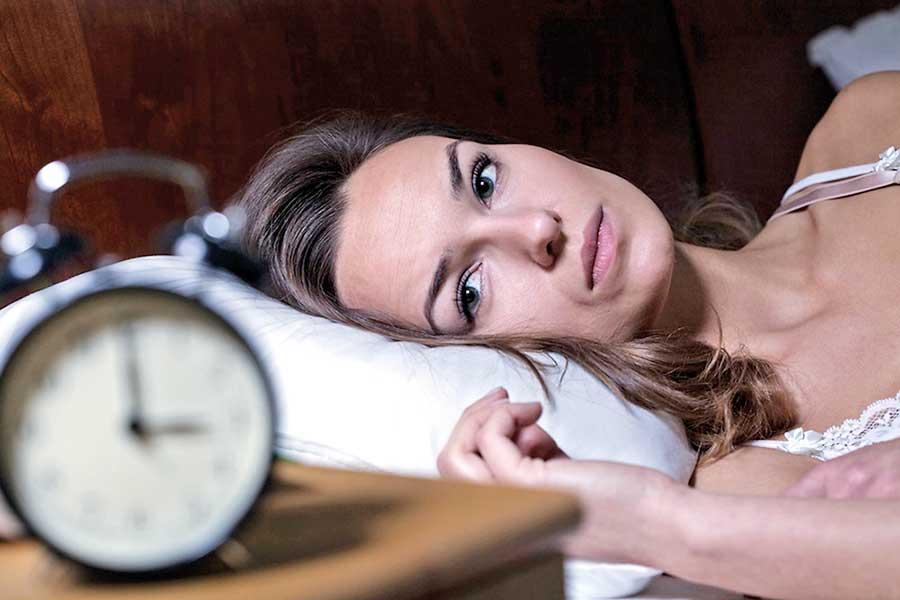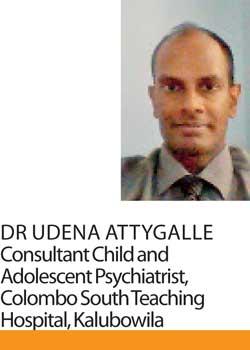30 Aug 2019 - {{hitsCtrl.values.hits}}

 Have you ever considered the fact that with an average of around 8 hours of sleep per day, you have slept through one third of your whole life? But contrary to what you might feel, this time is not in any way ‘wasted’. Sleeping is such an ingrained part of a person’s life that we sometimes tend to forget how important it is. An adequate amount of good quality sleep is essential for a person to remain healthy. Yet, a considerable number of people in the society suffer from sleep related issues such as insomnia. Dr. Udena Attygalle, Consultant Child and Adolescent Psychiatrist, Colombo South Teaching Hospital, Kalubowila will join us today in Health Capsule, to discuss sleep and insomnia.
Have you ever considered the fact that with an average of around 8 hours of sleep per day, you have slept through one third of your whole life? But contrary to what you might feel, this time is not in any way ‘wasted’. Sleeping is such an ingrained part of a person’s life that we sometimes tend to forget how important it is. An adequate amount of good quality sleep is essential for a person to remain healthy. Yet, a considerable number of people in the society suffer from sleep related issues such as insomnia. Dr. Udena Attygalle, Consultant Child and Adolescent Psychiatrist, Colombo South Teaching Hospital, Kalubowila will join us today in Health Capsule, to discuss sleep and insomnia.
All you need to know about Sleep
Sleep has been a topic of interest of scientists for centuries. While it was assumed that sleep was a passive or inactive process for a long time, it has now been discovered that sleep is in fact an active process. The brain is actively releasing specific neurotransmitters and performs important functions like memory consolidation while a person is asleep.
When you are asleep, your brain alternates between two main stages of sleep, which, taken together is called a sleep cycle. One is called the Rapid Eye Movement or REM sleep, while the other is called the slow wave sleep or non-REM sleep.
Newborns have the highest requirement when it comes to sleep. The amount of sleep required gradually reduces with age. An average sleep cycle lasts around 90 minutes and a person usually goes through 4-5 such cycles during a night’s sleep.
Brain is found to be more active in REM sleep, and this is when a person usually dreams. You dream more in early morning because the REM sleep time tends to get longer with each cycle of sleep, so you have more time to dream in the morning.
Insomnia
When a patient complains of insomnia, he may be having difficulty in falling asleep, difficulty in staying asleep, resulting in frequent awakenings, or both. Reasons for insomnia are varied and can be due to physical, neurological as well as psychiatric causes. Some people have difficulty falling asleep since they were young, while some will develop it at an older age.
Physical causes of insomnia
Obstructive sleep apnea is a dangerous physical condition which presents as frequent awakening at night. This is caused due to the obstruction of airway during sleep due to various causes, preventing the lungs from getting adequately aerated. This soon results in deprivation of oxygen to the brain and awakening early in the cycle.
Chronic pain, menopause and asthma are some other physical causes for insomnia
Psychiatric causes of insomnia
People having depression can present with insomnia where the patient has poor sleep or its opposite; hypersomnia, where the patient sleeps excessively. Insomnia typically presents as early morning awakening where the patient wakes up in the early hours and lies awake, thinking. Other psychiatric conditions like anxiety, bipolar disorder and substance abuse can also present with insomnia.
Side effects
While staying awake for a day or two doesn’t seem a big issue, when a person is deprived of sleep continually for a period of time, it takes its toll on the brain and the body. Lethargy and tiredness during day time, loss of concentration and memory as well as alteration of certain hormones in the body are some such side effects. In addition, it can be extremely dangerous for these people to do certain tasks like drive vehicles and operate heavy machinery.
Sleep Hygiene
Do you find it difficult to fall asleep? Researchers have found that certain behaviour in a person’s life promotes poorer quality sleep. Laying awake on the bed doing other unrelated things like browsing the internet, drinking stimulants like tea or coffee before bed, having erratic sleep wake time are some such behaviour.
Similarly, they have also established a series of rituals to follow before bed time, which will help you achieve better quality sleep.
-Try to have a fixed time schedule for going to bed at night and for waking up in the morning and try to adhere to it every day. Avoid caffeine alcohol and other chemicals which will keep you awake, too close to your bed time.
-Try to have a soothing ambience in your bed room. Do not use bright light in the room before bed time. Avoid clutter in the bed room, including televisions and computers. Make sure you have clean and comfortable mattress, sheets and pillows in your bed.
-Establish a night routine that relaxes you. This might include taking a bath, listening to soothing music and a light meal. Do not exercise too close to your bed time and avoid prolonged day time naps.
These steps, seemingly small and insignificant at first, have shown remarkable success throughout the world.
Other sleep disorders
In addition to insomnia, there are many other conditions related to sleep. Night terrors, where the person wakes up with sweating and palpitations due to no obvious reason, narcolepsy, where a person cannot resist falling asleep at inappropriate places, sleep walking, where the person walks around in sleep with no memory of it later, and sleep paralysis where the person is half awake but cannot move his limbs are some such sleep related phenomena.
Seeking medical help
If you are having sleep-related conditions for long periods of time or if it significantly affects your day to day life, it is advisable to seek medical help. This is especially important because sleep disorders can be the presentation of a more sinister underlying cause.
Self medication with sleeping pills is strongly discouraged. It is found that while certain medication may improve the duration of sleep, the quality of sleep is not significantly improved, resulting in the person being tired after long duration of medication induced sleep. Certain pills like benzodiazepines are also addictive with long term use, so should not be used without medical advice.
In a nutshell, sleep is an essential part of a person’s day today life. It is not a passive process where a person lies unconscious, but a series of activities in the brain and body resulting in significant improvement of physical and mental health of a person. It is important to have an adequate amount of uninterrupted sleep which can be achieved through practising good sleep hygiene. It is important to seek medical advice if you are having problems with sleep which significantly affects your day-to-day life.
21 Dec 2024 21 Dec 2024
21 Dec 2024 21 Dec 2024
21 Dec 2024 21 Dec 2024
21 Dec 2024 21 Dec 2024
21 Dec 2024 21 Dec 2024